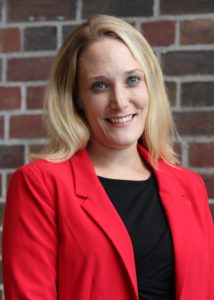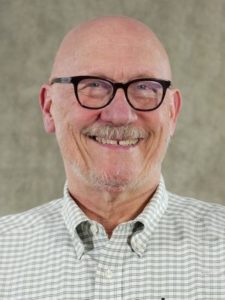 Rachel Kopec, Assistant Professor, Department of Human SciencesRachel Kopec
Rachel Kopec, Assistant Professor, Department of Human SciencesRachel KopecThe focus of this work is to understand how a proprietary blend of phospholipids influence the bioaccessibility and bioavailability of common carotenoids. Both in vitro digestion and Caco-2 cell models are being employed to answer these questions.

 David Julian, Program Director of Equity, Engagement and Evaluation
David Julian, Program Director of Equity, Engagement and Evaluation Dean Lillard, Professor, Consumer Sciences
Dean Lillard, Professor, Consumer Sciences Sarah Lang, Assistant Professor, Human Development and Family Science
Sarah Lang, Assistant Professor, Human Development and Family Science James Austin, Program Lead of Assessment Services
James Austin, Program Lead of Assessment Services Traci Lepicki, Associate Director of Operations and Strategic Initiatives
Traci Lepicki, Associate Director of Operations and Strategic Initiatives Christopher Zirkle, Associate Professor, Department of Educational StudiesChristopher Zirkle
Christopher Zirkle, Associate Professor, Department of Educational StudiesChristopher Zirkle Edward Fletcher, Associate Professor
Edward Fletcher, Associate Professor Michael Betz, Associate Professor, Consumer Sciences
Michael Betz, Associate Professor, Consumer Sciences Laura Justice, Professor; Executive Director of the Crane Center for Early Childhood Research and Policy (CCEC)
Laura Justice, Professor; Executive Director of the Crane Center for Early Childhood Research and Policy (CCEC)